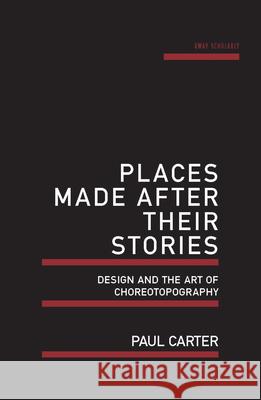Places Made After Their Stories: Design and the Art of Choreotopography » książka
Places Made After Their Stories: Design and the Art of Choreotopography
ISBN-13: 9781742587608 / Angielski / Miękka / 2015 / 470 str.
How is emotional meaning found in places? How can creating new urban spaces be a vehicle for less adversarial forms of political coexistence, as well as new customs of social innovation? Places Made After Their Stories shows how the emotional geographies we carry inside us and the ecstatic desire at the heart of democratic community-making can come together to inform contemporary landscape and urban design. Using Australian case studies of public space design from Alice Springs to Perth and Melbourne, in which author Paul Carter forged for himself the novel role of designer/dramaturg, he describes a new approach to place-making in which topography and choreography fuse. He counters the symbolic neglect of functionalist design with a brilliant account of poetic and graphic techniques developed to materialize ambience. Bringing together and further transforming insights from such earlier publications, such as Material Thinking (2004) and Meeting Place (2013), Carter describes a practice of sense-making and form-making that embodies fundamental gestures of welcome, arrangement, and exchange in the built setting. This is a book of characteristic eloquence, generously gathering philosophical and poetic evidence to illuminate a new way of place-making. It will be a practical guide for artists wanting to work in the public realm and a key reference for planning authorities, governments, and communities keen to reconnect place making to human creativity and affect. *** "In this complex, commanding, and eloquently poetic book, author Paul Carter] proposes that readers join in the dance of defining and exploring a new interdisciplinary field of study, choreotopography--a fusion of choreography and topography, of dance, drama, storytelling, and the sense of place. Carter has developed the concept as a way to theorize and encourage spontaneous, free-flowing interactions between groups of people and the designed environment in which they move." -- Public Art Review, Issue 54, Spring/Summer 2016 *** Librarians: ebook available on ProQuest and EBSCO Subject: Urban Planning, Public Art, Architectural Design, Cultural Theory]











